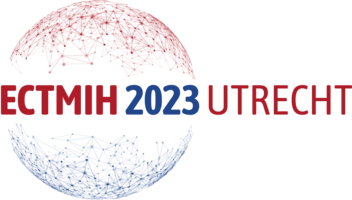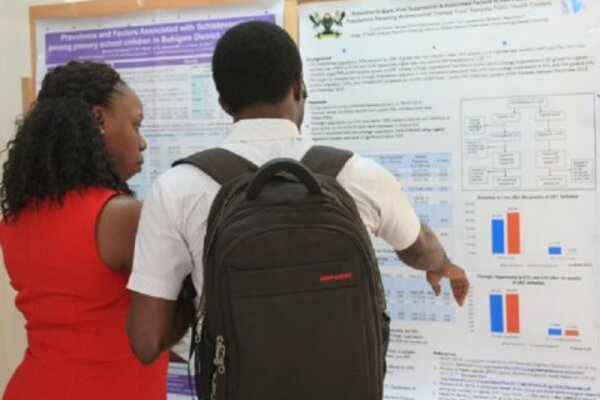Screen 1: Helminths
Seroprevalence and microscopy detection rates of strongyloidiasis in Croatian patients with eosinophilia(Mario Sviben et al.)
The development and validation of a latrine-based surveillance system to monitor and evaluate soil-transmitted helminthiasis control programmes (Abebaw Tiruneh et al.)
Lymphatic filariasis treatment studies: the case for an individual participant-level data platform (Azhar Uddin et al.)
Understanding the barriers and facilitators of mass drug administration in persistent schistosomiasis hotspots along Lake Albert, Hoima District, Western Uganda (Odoi Paskari et al.)
Urogenital schistosomiasis in preschool children in Cubal, Angola (Raquel S!anchez-Marqués et al.)
Screen 2: Environmental exposures
Co-producing and co-creating knowledge on ambient lighting, air and noise pollution, gendered accessibility and transport for an equitable healthy Dhaka City (Sabrina Mustabin Jaigirdar et al.)
Assessing the health risks of microplastic exposures during pregnancy and early life (Virissa Lenters et al.)
Maternal facilitators and barriers to compliance with a raw coal ban in Ulaanbaatar, Mongolia: a mixed-methods study (Rob Miller et al.)
Environmental risk factors associated with birth defects in a war zone in Iraq (Jeffrie Quarsie et al.)
Adolescent health and well-being in the context of natural resource extraction projects: a scoping review (Olga Cambaco et al.)
Screen 3: Leishmaniasis
Epidemiological shifting of visceral leishmaniasis in Nepal: an emerging challenge for elimination (Uttam Raj Pyakurel et al.)
Are the clinical features of leprosy and American tegumentary leishmaniasis worse in patients with both diseases? (Amanda Carvalho et al.)
Innate immune cellular profile revealed by immunohistochemistry in cutaneous leishmaniasis caused by Leishmania donovani (Hasna Riyal et al.)
Factors underlying late diagnosis of visceral leishmaniasis among children in Brazil: a nationwide study (Murilo Brino et al.)
Risk of Leishmania transmission in visceral leishmaniasis non-endemic districts of Nepal: an explorative entomological survey (Lalita Roy et al.)
A systematic review of prognostic prediction models describing clinical outcomes in patients diagnosed with visceral leishmaniasis (James Wilson et al.)
Screen 4: Child health
Impaired extrauterine growth among preterm infants in Eastern Uganda: the role of intrauterine growth restriction (Noella Okalany et al.)
Monitoring critically ill children in Malawi: a qualitative study (Daniel Mwale et al.)
“My baby is fine, no need for more clinic visits.” Facilitators and barriers for utilization of follow-up services for children born preterm in a low-resource setting: parents’ perceptions (Flavia Namiiro et al.)
Modelling by multivariate analysis of the factors associated with dental caries in middle school students over 12 years old in Ambatondrazaka, Madagascar (Nantenaina Pierre Michael Nomenjanahary et al.)
The caregiver’s experience of childhood cancer treatment in South Africa (Iris Joosse et al.)
Screen 5: Malaria (1)
Plasmodium falciparum with pfhrp2 and pfhrp3 gene deletions in asymptomatic malaria infections in the Lake Victoria region, Kenya (Takatsugu Okai et al.)
Reducing low birth weight by adding two doses of azithromycin to the intermittent preventive treatment of malaria in pregnancy with sulfadoxine pyrimethamin: a randomized controlled trial in Burkina Faso Moussa Lingani et al.)
Harbouring of multiple plasmodium species triggers symptomatic malaria in endemic population (Jackline Jumah et al.)
Side-effects and factors influencing non-adherence to mass drug administration for malaria control in the context of a cluster randomised clinical trial (MATAMAL) on the Bijagós Archipelago, Guinea-Bissau (Maeve Barlow et al.)
Porous borders, mobile migrants and malaria elimination: estimating population size and movements of artisanal small-scale gold mining workers in Suriname and French Guyana (Pierre Pratley et al.)
Screen 6: Health systems
The impact of healthcare reform on equity in health workers distribution in Burundi: a 12‑year follow‑up study (Alain Ndayikunda et al.)
Using system thinking approaches to identify gaps and co-design interventions for building a resilient local health system (Shophika Regmi et al.)
Polyvalent provincial supervision of health zones in the Democratic Republic of Congo: the case of Kasai-Oriental province (Emmanuel Mukendi Mukendi et al.)
A qualitative study on the use of the Hospital Safety Index and the formulation of recommendations for future adaptations (Hamdi Lamine et al.)
How to scale-up: a comparative case study of scaling up a district health management strengthening intervention in Ghana, Malawi and Uganda (Susan Bulthuis et al.)
Factors influencing the dissatisfaction of patients/users of pharmacies in basic health centres in Antananarivo, Madagascar (Nantenaina Pierre Michael Nomenjanahary et al.)
Screen 7: Provision of care
Health facility readiness to provide services covered under Sehat Card Plus, a social health insurance programme, Khyber Pakhtunkhwa, Pakistan (Shifa Salman Habib et al.)
Perception of the six keys roles of a family medicine physician in Malawi and their perceived impact (Martha Makwero et al.)
Experiences and perspective of healthcare providers on using e-cigarettes for smoking cessation: a cross-sectional study in Thailand (Surarong Chinwong et al.)
Where do people with hypertension or type 2 diabetes seek care when ill? A cross-sectional study on sociodemographic correlates of utilization of healthcare facilities in rural Kenya (Mackenna Ray Schwarz et al.)
Assessment of patient-centred care among diabetic patients in Malawi (Martha Makwero et al.)
Screen 8: Gender-based violence
Exploring sexual and gender-based violence from Indian adolescents perspective (Pratishtha Singh)
Unplanned pregnancies among schoolgirls in three departments of Benin: victim profile, risk factors and consequences (Yassinme Elysee Somasse et al.)
The psychological trauma of survivors of strategic rape survivors, Tigray, Ethiopia (Kokob Gebru Kidanu et al.)
The burden and determinants of gender based violence and the sustainability of the utilization of the trauma resilience and understanding self-help therapy by returnees living in northern Uganda: a pilot study (Jimmy Forry et al.)
Screen 9: Covid-19
Impact of Covid-19 containment measures on children with cancer in Indonesia (Ibrahim El Salih et al.)
Modelling time to recovery of diabetic patients from Covid-19: a retrospective cohort study at Eka Kotebe General Hospital in Addis Ababa, Ethiopia (Mulualem Tadesse Jano et al.)
Characterising socio-spatial variation around Covid-19 distribution in Lima, Peru (Claudia Nieto-Sanchez et al.)
Optimizing vaccine uptake in sub-Saharan Africa: lessons learnt from a collaborative Covid-19 vaccination campaign in Madagascar (Viola Pavoncello et al.)
Time to appropriate care-seeking for Covid–19 symptoms (Martin Herbas Ekat et al.)
Adverse pregnancy outcomes before and during the Covid-19 pandemic in Ulaanbaatar, Mongolia: a retrospective cohort study (Gruffudd Roberts et al.)
Screen 10: Nutrition and WASH
Impact of malnutrition on the pharmacokinetics of chemotherapy in children with cancer: a systematic review (Sterre Schoon et al.)
Water, sanitation and hygiene and infant young child feeding practices are both associated with childhood malnutrition in Lao PDR (Vicheth Somphos Som et al.)
Pathways of improved nutritional status of under-five children through women’s empowerment modified by healthcare services (Saira Parveen Jolly et al.)
A human rights-based, regime interaction approach to climate change and malnutrition: reforming food systems for human and planetary health (Rosalind Turkie)
Sanitary conditions and hygienic practices of street food vendors in selected towns of Ethiopia: a cross-sectional study addressing public health concerns (Mathewos Weldekirkos et al.)
An assessment of the national health information system for childhood nutrition and growth programmes in Rwanda through the experiences of caregivers and health workers: a qualitative study (Enock Rukundo et al.)

